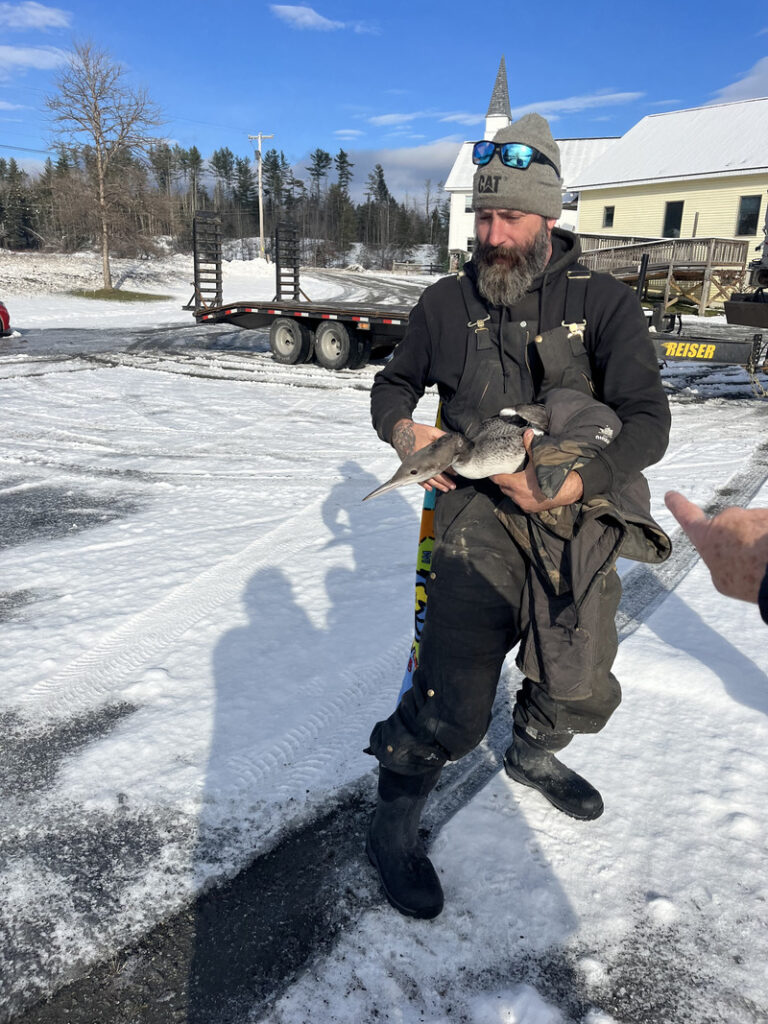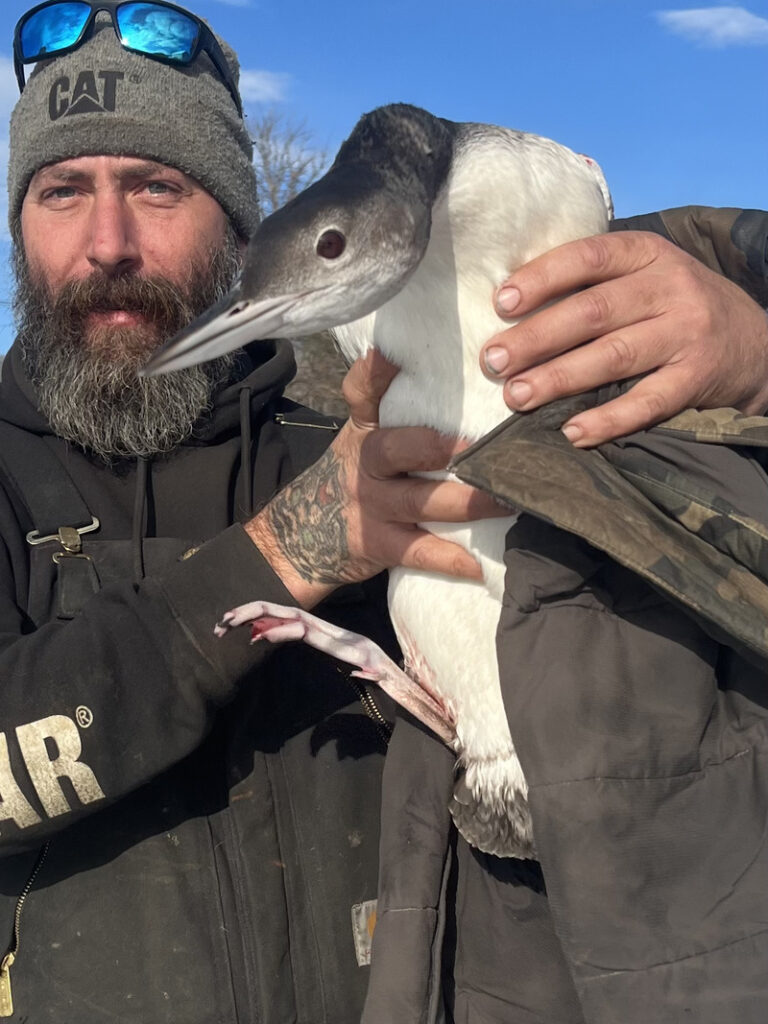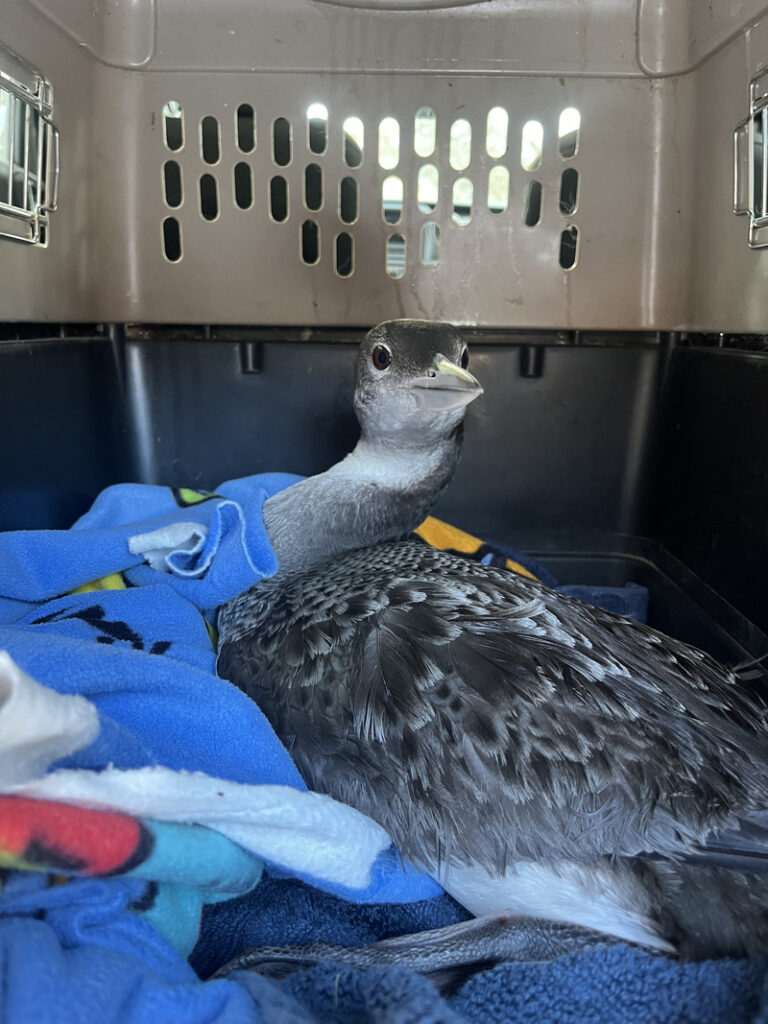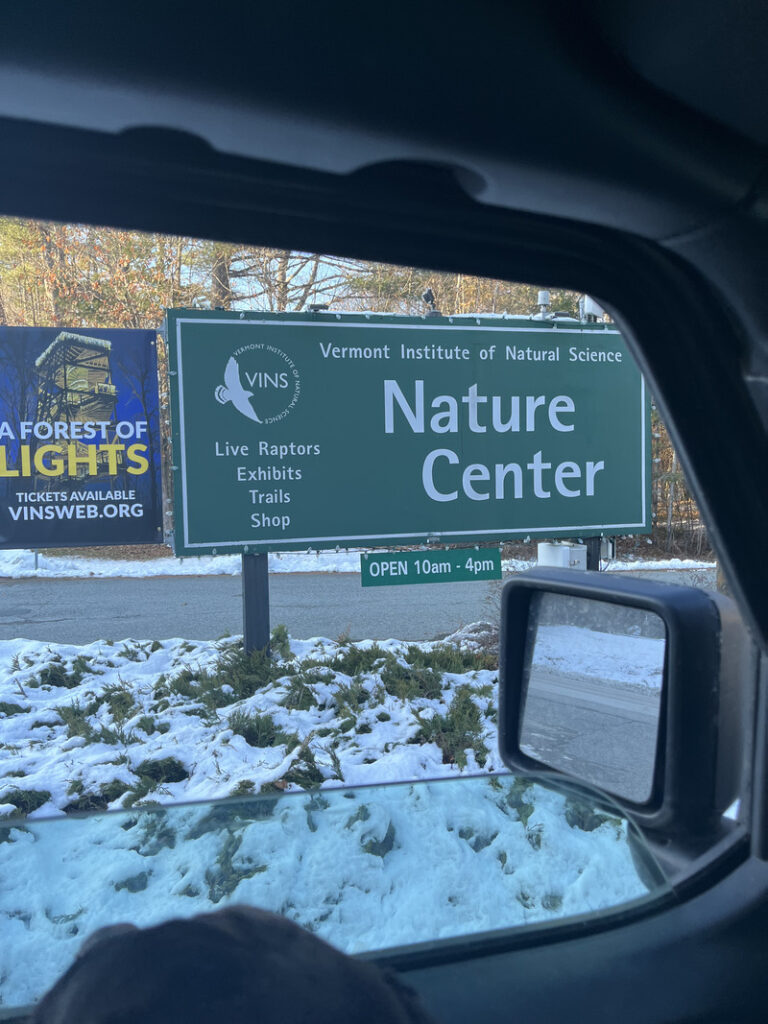A female Common Loon was rescued in the Mad River Valley on Wednesday December 6th after the bird was observed to be immobile in a snow field between the Church of the Crucified One and the Turner Farm on the east side of Route 100 just south of Moretown. Kelly Baird noticed the bird while driving on Route 100 and attempted to get help by calling Game Warden Chad Barrett, of the Vermont Department of Fish and Wildlife, the Vermont Institute for Natural Science (VINS) and eventually her friend Dave Millard of Native Stone. Millard, who lives in Warren, was in Sharon, Vermont and agreed to immediately head back north to Waitsfield. Meanwhile Carol Thompson, also traveling along Route 100, was alerted to the presence of the loon by crows circling overhead and stopped to investigate. Carol called her friend Neal Mostov, asking that he bring binoculars to better view the situation. After Neal arrived, Dave drove up and as he began his effort to capture the bird, it became clear that the loon was not especially interested in becoming a captive. Dave persisted and ultimately succeeded, wrapping his jacket around the bird, who appeared to have an injured leg. The bird was wrapped in a blanket provided by Carol and loaded into a dog crate and Dave then drove the bird down to VINS in Quechee, Vermont, which has a facility to rehabilitate injured birds and wildlife.
Grae O’Toole of VINS reported on Thursday December 7th that an Xray confirmed that the bird had no fractures and a blood test showed no evidence of unhealthy lead levels (frequently a cause of health problems in this species). Grae speculated that the bird had likely become exhausted and/or disoriented in wet, snowy and windy weather the evening before, and had mistaken a shiny roadway or snowfield for water and had crash landed. Common Loons, while great fliers and swimmers, are actually unable to walk on land, and are virtually immobile and defenseless when out of the water. Grae said that the bird was released to water that next morning, so that it could resume its journey to its wintering territory in the open waters of the Atlantic Coast.
Millard said he did a lot of driving on Wednesday, but was delighted to learn that the bird was found to be uninjured and was once again on its way. If you find an injured bird you can call VINS at (802) 359-5000 for guidance and volunteers willing to drive birds or wildlife to their center in Quechee are always appreciated.



